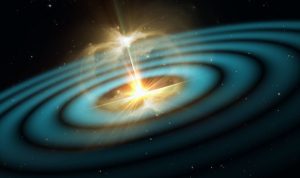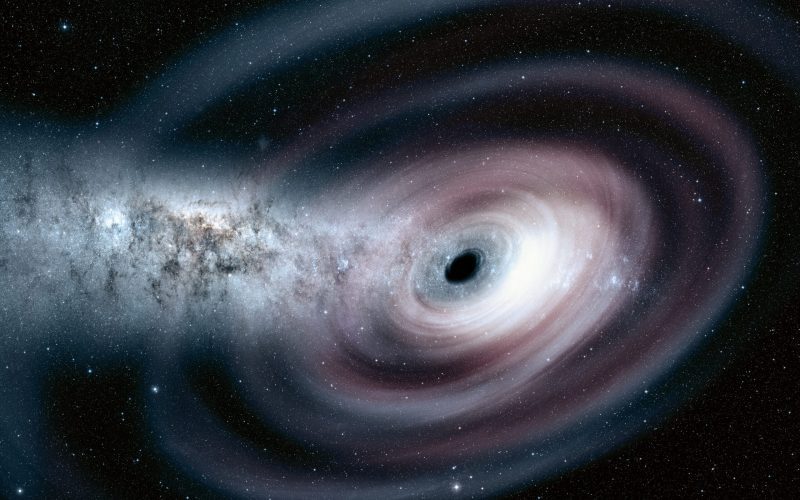Cosmology, the study of the universe in its entirety, offers a fascinating journey into the depths of space and time. From the smallest subatomic particles to the largest cosmic structures, cosmology seeks to unravel the mysteries of existence itself. Let’s embark on a cosmic adventure, exploring the vast expanse of the cosmos and the profound insights it provides into our place in the universe.
Introduction to Cosmology
Understanding the Universe
Cosmology endeavors to understand the origin, evolution, and eventual fate of the universe. It delves into questions about the nature of space, time, matter, and energy on the grandest scales imaginable.
Historical Development of Cosmology
Throughout history, civilizations have pondered the cosmos, offering various cosmological theories and mythologies to explain the universe’s workings. From ancient creation myths to modern scientific inquiry, humanity’s curiosity about the cosmos has persisted.
The Big Bang Theory
Origin and Expansion of the Universe
The Big Bang theory posits that the universe originated from a singular, infinitely dense point approximately 13.8 billion years ago. This event marked the beginning of space, time, and matter, and the subsequent expansion of the universe continues to this day.
Evidence supporting the Big Bang
Observational evidence, such as the cosmic microwave background radiation and the redshift of distant galaxies, strongly supports the Big Bang theory, providing compelling confirmation of the universe’s dynamic history.
Formation of Galaxies and Stars
Gravity’s Role
Gravity plays a crucial role in the formation of galaxies, stars, and other celestial structures. Over time, gravitational interactions between matter lead to the condensation of gas and dust into galaxies, where stars are born within vast clouds of interstellar material.
Stellar Evolution
Stars undergo a complex lifecycle, from their formation through nuclear fusion to their eventual demise. The processes of star formation, fusion, and supernova explosions contribute to the enrichment of the cosmos with heavy elements essential for the formation of planets and life.
Dark Matter and Dark Energy

Unseen Forces in the Universe
Dark matter and dark energy constitute the majority of the universe’s content, yet their nature remains elusive. While dark matter exerts gravitational influence on visible matter, dark energy drives the accelerated expansion of the universe, shaping its large-scale structure.
Their Impact on Cosmology
The presence of dark matter and dark energy presents profound challenges and opportunities for cosmological research, pushing scientists to explore the unknown realms of physics and cosmology in search of answers.
The Structure of the Universe
Cosmic Web
The universe exhibits a vast cosmic web of interconnected filaments, voids, and galaxy clusters, sculpted by the gravitational pull of matter. This intricate structure reveals the underlying framework of cosmic evolution.
Galaxy Clusters
Galaxy clusters, the largest gravitationally bound structures in the universe, provide insights into the distribution of matter and the formation of cosmic structures. Their study informs our understanding of the universe’s growth and evolution.
Cosmic Microwave Background Radiation
Echoes of the Big Bang
The cosmic microwave background (CMB) radiation is the relic radiation from the early universe, serving as a snapshot of the universe when it was just 380,000 years old. Its discovery revolutionized cosmology, offering unparalleled insights into the universe’s infancy.
Measuring the CMB
Cosmologists analyze the CMB to study the universe’s composition, age, and geometry, extracting valuable information about its fundamental properties and evolution over billions of years.
Multiverse Theories
Speculations beyond our Universe
Multiverse theories propose the existence of multiple universes, each with its own unique properties and physical laws. These speculative concepts push the boundaries of our understanding of reality and the cosmos.
String Theory and Multiverse
String theory, a leading candidate for a theory of everything, suggests the existence of additional dimensions and parallel universes, offering tantalizing possibilities for cosmological exploration beyond our observable universe.
The Fate of the Universe

Expansion, Contraction, or Steady State?
Cosmologists investigate the ultimate fate of the universe, considering scenarios of continued expansion, eventual collapse, or a stable, unchanging state. The outcome depends on the balance between cosmic forces and the nature of dark energy.
Theories on the End of the Universe
Various theories, such as the Big Freeze, Big Crunch, or Big Rip, speculate on the universe’s fate billions or even trillions of years into the future, highlighting the profound implications of cosmological research.
Cosmology and Philosophy
Understanding our Place in the Cosmos
Cosmology raises philosophical questions about the nature of existence, consciousness, and the universe’s purpose, challenging us to contemplate our place in the vast cosmic tapestry.
Implications for Existence and Reality
The insights gained from cosmological inquiry have profound implications for our understanding of reality, prompting philosophical reflections on the nature of space, time, and the cosmos.
Challenges and Frontiers in Cosmology
Dark Matter and Dark Energy Mysteries
Unraveling the mysteries of dark matter and dark energy remains one of the greatest challenges in cosmology, driving scientific innovation and collaboration worldwide.
Gravitational Waves and Black Holes
The recent detection of gravitational waves and the study of black holes provide new avenues for exploration in cosmology, offering novel insights into the universe’s most extreme phenomena.
Practical Applications of Cosmological Research
Technological Spin-offs
Cosmological research often leads to technological advancements with practical applications in fields such as astrophysics, aerospace engineering, and information technology, benefiting society as a whole.
Contributions to Fundamental Physics
Cosmology intersects with fundamental physics, shedding light on the underlying principles governing the universe and inspiring groundbreaking discoveries in particle physics and quantum mechanics.
Educational Outreach and Public Engagement
Bringing Cosmology to the Masses
Educational outreach programs and public engagement initiatives play a crucial role in fostering scientific literacy and inspiring curiosity about the cosmos among people of all ages and backgrounds.
Inspiring Future Generations
By igniting a passion for exploration and discovery, cosmology inspires future generations of scientists, engineers, and thinkers to push the boundaries of human knowledge and understanding.
Ethical Considerations in Cosmological Exploration
Impact on Society and Culture
Cosmological exploration raises ethical questions about the responsible use of resources, the dissemination of knowledge, and the potential societal impacts of scientific discoveries.
Responsibility of Scientists
Scientists have a moral and ethical responsibility to conduct research with integrity, transparency, and consideration for the broader implications of their work on society and the environment.
The Future of Cosmology
Advancements in Technology
Advances in technology, such as next-generation telescopes, particle accelerators, and computational tools, promise to revolutionize our understanding of the cosmos and unlock new realms of discovery.
Unanswered Questions and Exciting Prospects
As we peer deeper into the cosmos, countless unanswered questions await exploration, from the nature of dark matter to the possibility of extraterrestrial life, offering exciting prospects for future cosmological research.
Conclusion
Cosmology serves as a window into the infinite, offering profound insights into the nature of the universe and our place within it. Through scientific inquiry, philosophical contemplation, and technological innovation, we continue to unravel the mysteries of the cosmos, expanding our understanding of the universe and ourselves.












